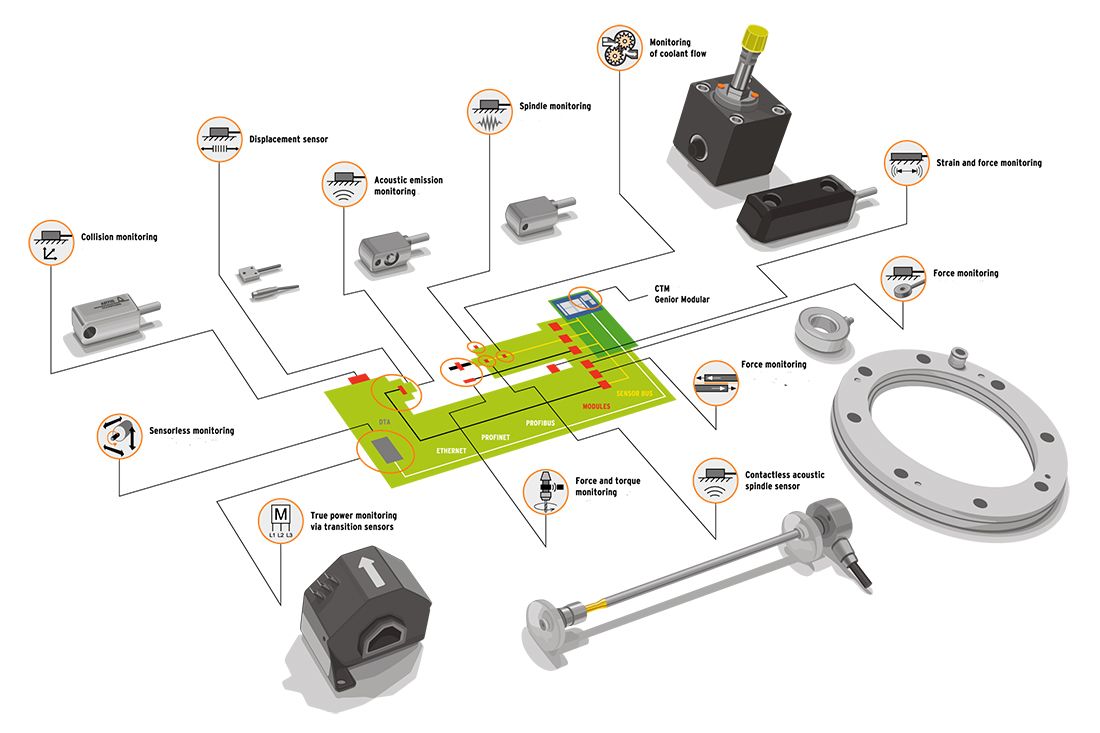-
Full control of the production process
-
Optimum use of tools and machine
-
Reduction in machine downtime with predictive maintenance
-
Limitation of damage caused by collisions
Optimization of the production process must be very detailed and have the ability to cover a wide-ranging analysis of the data. In this respect, the collection of data must be done in a capillary and continuous manner. In mechanical machining, the result can only be achieved through monitoring the machine tool in its main parts: spindle, table, fixtures, etc. This information is collected through dedicated sensors that can be integrated to those provided by numeric controls, in order to obtain a true representation of the process according to the principles of "data fusion.” Data is then processed by the electronic unit and sent to a mainframe to allow remote management and decision-making. What distinguishes Marposs applications from others in the market are the electronic units used. These units are designed to withstand hostile work environments and can perform the data transmission protocols designed according to the typical interface of machine tools, PLC I/O and fieldbus.
Marposs offers solutions for:
-
Load/Power monitoring
-
Force monitoring
-
Torque Monitoring
-
Vibration monitoring
-
Strain monitoring
-
Dimension monitoring
-
Temperature monitoring
-
Tool integrity check by indirect measurement of the mechanical force
-
Tool integrity check by direct measurement of mechanical force
-
Monitoring of processes at calibrated force
-
Tool integrity check by direct measurement of the mechanical torque
-
Tool unbalancing monitoring
-
Machine monitoring to detect degenerative phenomena
-
Machine monitoring to detect critical events
-
Monitoring of thermosensitive processes and operating temperatures
